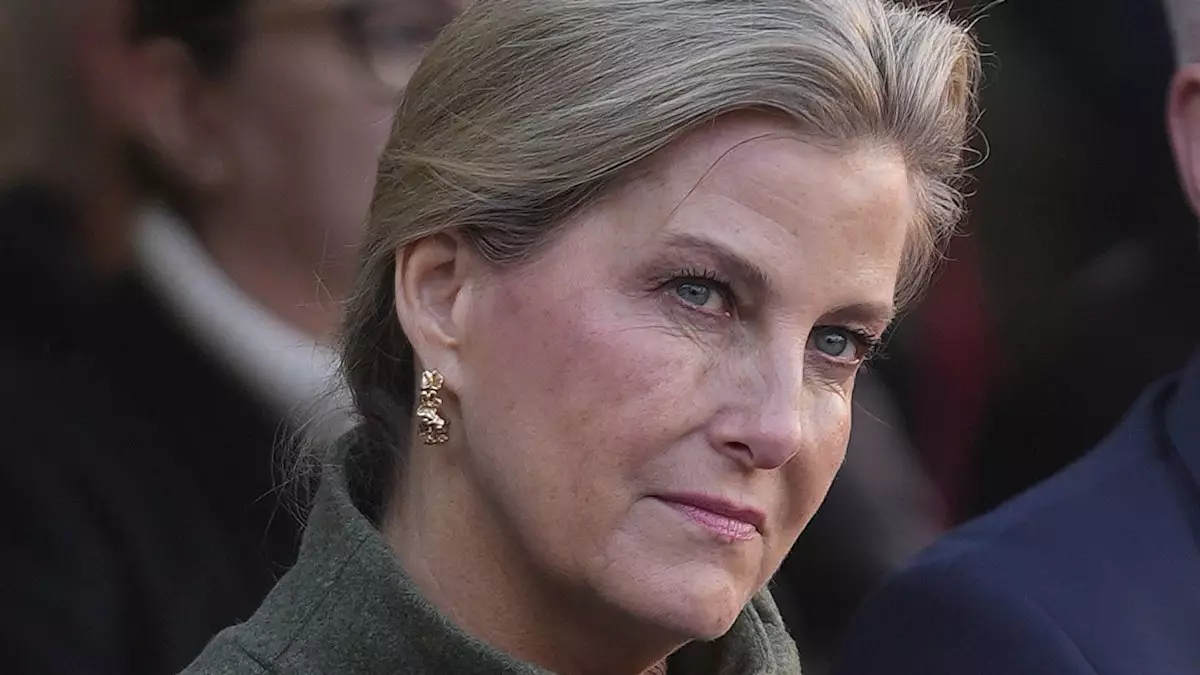In a world often characterized by indifference to personal suffering, the Duchess of Edinburgh, Sophie, continues to shine as a remarkable figure of compassion and empathy. Her recent engagement with Yazidi genocide survivor, Awaz Abdi, underscores the royal’s commitment to raising awareness about the traumatic impacts of violence and human rights abuses. This encounter, photographed during the Women Who Beat Isis exhibition at the Foreign Office in London, is much more than a simple hug between two individuals; it symbolizes a larger narrative concerning the importance of listening, learning, and identifying with the plights of those who have endured unimaginable horrors.
During her interaction with Awaz, who was only ten years old when kidnapped and enslaved by the Islamic State in Iraq, Sophie displayed an emotional sensitivity that resonates strongly with the theme of trauma recovery. Awaz’s story is a painful reminder of the struggle for survival and the lingering shadows of violence that affect entire families and communities. This connection between the Duchess and Awaz serves to amplify the voices of survivors, bringing their stories to the forefront of public consciousness when they are often overlooked.
Awaz Abdi’s account of her family’s abduction and the subsequent traumatic experiences endured by her parents is not merely a recollection of painful memories; it represents a collective experience shared by many victims of violence and genocide. The horror of being separated from family, facing exploitation, and ultimately grappling with the aftermath of such atrocities echoes loudly today. These narratives highlight the imperative for broader societal recognition of the psychological toll that such violence inflicts, lasting generations beyond the initial trauma.
In her public comments, Sophie acknowledged the ongoing hardships faced by survivors, illustrating an understanding that goes beyond superficial engagement. Her recognition of the “devastated families” serves as a poignant challenge to society at large to not only acknowledge the existence of such grief but also to take actionable steps toward recovery and healing. The Duchess’s compassion is admirable, but it also raises the critical question: how can societies ensure the safety and well-being of those vulnerable to such violence?
Sophie is not just a figurehead of compassion; she actively participates in various initiatives aimed at combating violence against women and promoting peace. As a champion of the UN’s Women, Peace, and Security Agenda, she leverages her royal status to address critical social issues many prefer to ignore. Her advocacy for the UK’s Preventing Sexual Violence in Conflict Initiative demonstrates her commitment to global change and underscores a pressing need for systemic reforms.
Her recent visit to Chad, where she was visibly moved by the stories of refugees fleeing civil war, emphasizes her role as a conduit between survivors and a broader audience. Through her actions, Sophie reinforces the idea that activism extends beyond mere awareness; it demands engagement, education, and sustainable solutions.
The genuine affection demonstrated by the Duchess has not only won her praise from many but also prompts a reflection on the responsibilities of contemporary society. In a digital age where voices can be amplified or muted at will, it’s crucial to remember the real stories behind the headlines. As observers, we must not forget our duty to support systematic change and advocate for peace as actively and fervently as Sophie does.
Social media reactions to Sophie’s benevolence reflect a broader yearning for compassionate leadership, which seems increasingly rare in our current cultural landscape. Her ability to connect with individuals marked by suffering and use that connection to inspire action has solidified her position as an influential force for good within the royal family.
Duchess Sophie of Edinburgh stands as an emblem of empathy and proactive engagement in humanitarian causes. By forging connections with survivors like Awaz Abdi, she not only acknowledges their pain but also amplifies their stories, creating ripples of awareness that can lead to tangible change. Through her unwavering commitment to advocacy and activism, Sophie offers a compelling example of how personal compassion can catalyze broader societal transformation.

